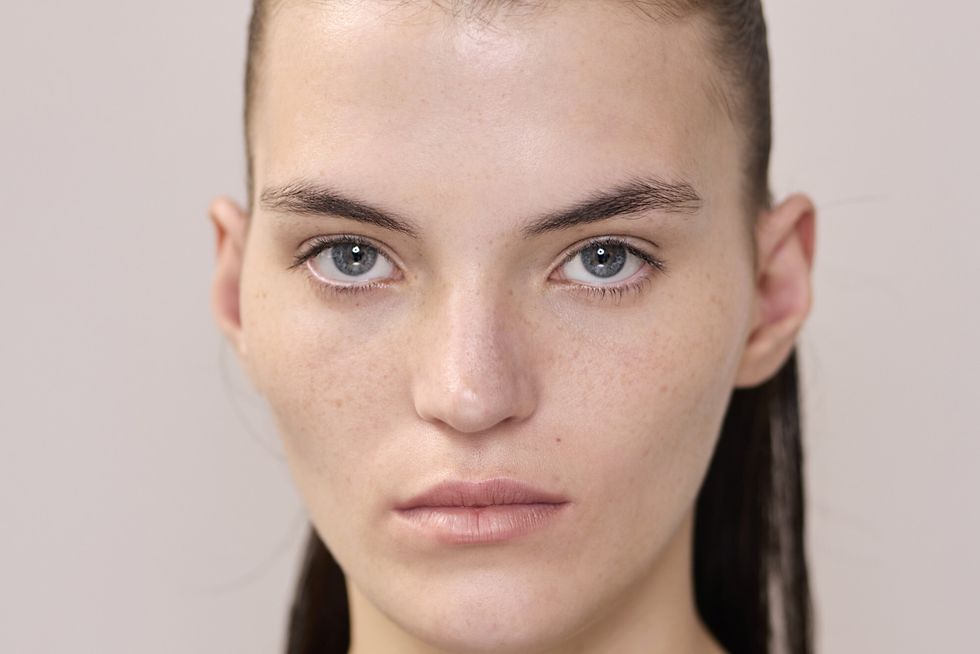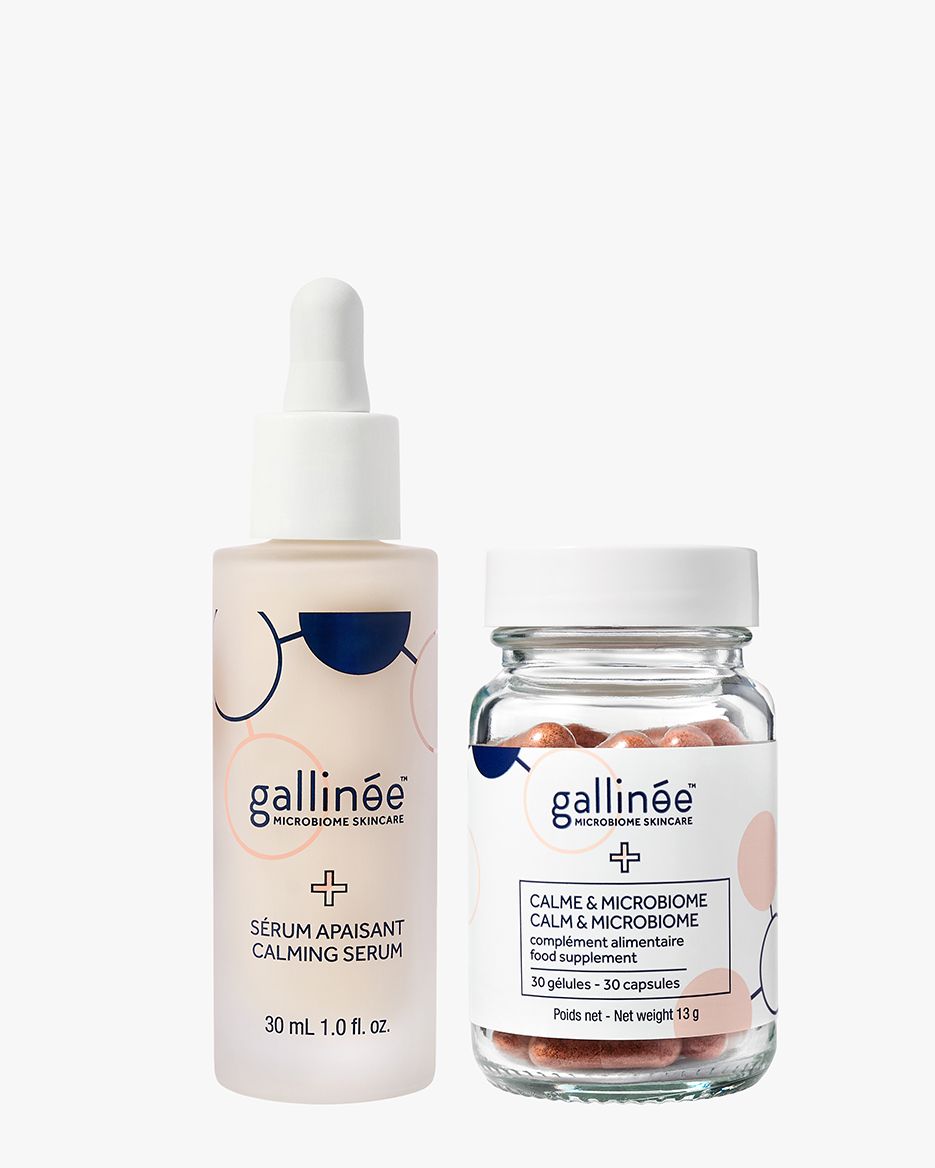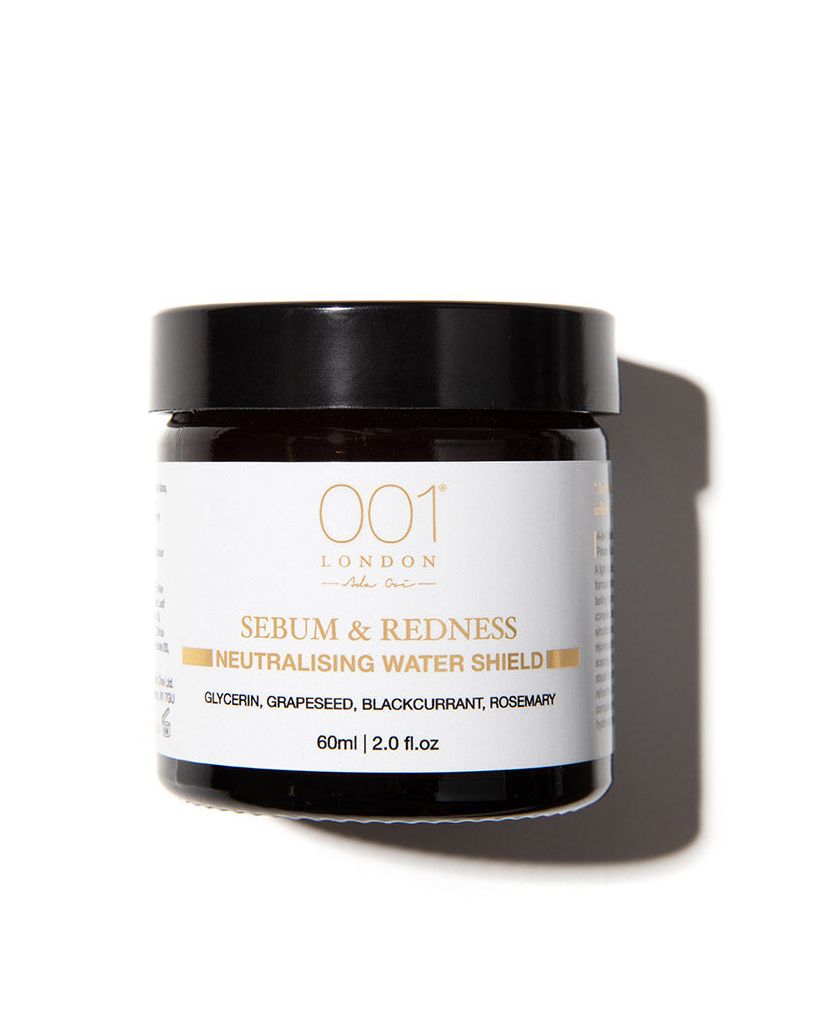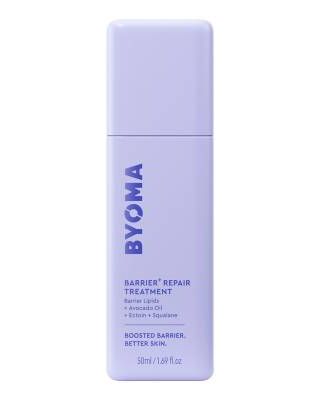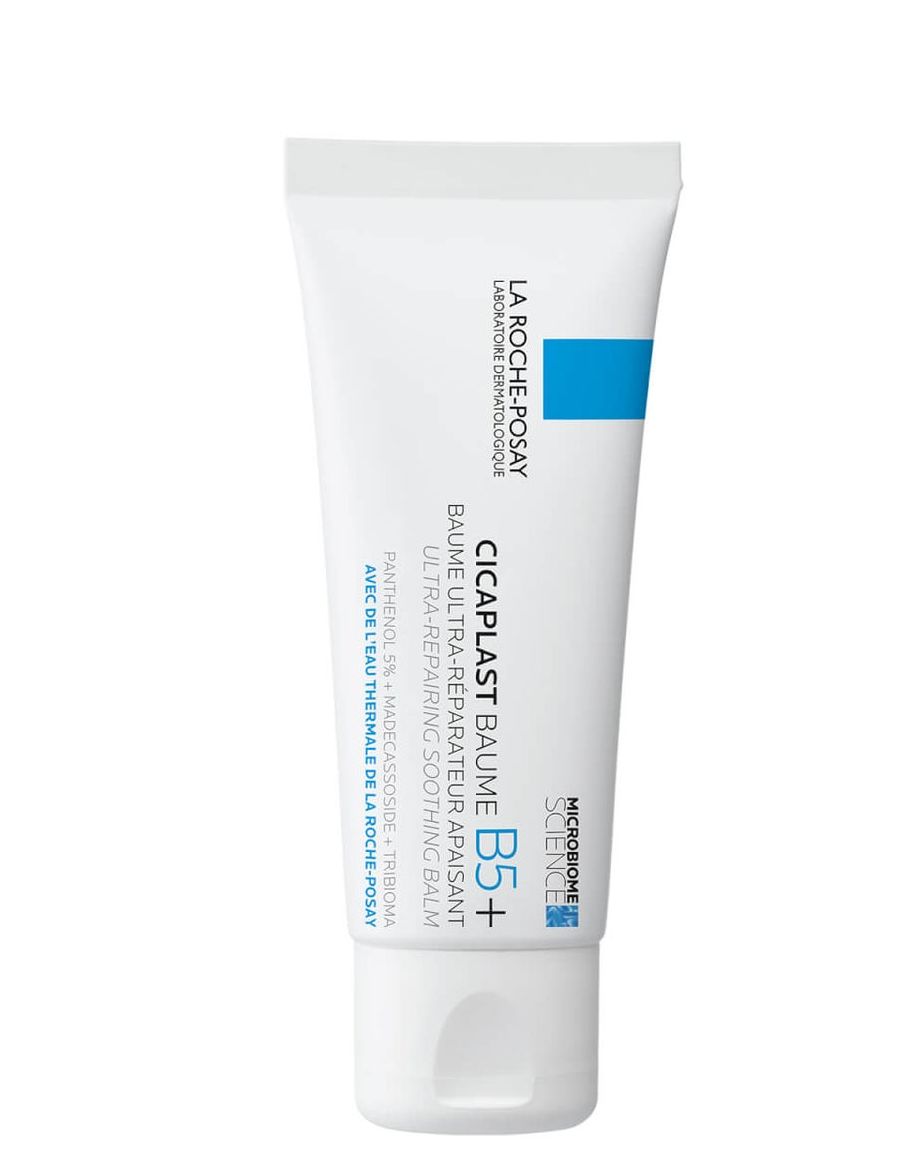It’s a scenario that would usually be conducive to a state of zen. But today, I’m stressed - or rather my skin is. My face looks red, inflamed and unhappy and I’m concerned that my dermis could be paying the price for a challenging start to the year (read: a bad break-up).
‘Is that even possible?’, I ask, mid-facial.
‘Yes, your skin is stressed,’ confirms celebrity facialist Ada Ooi as I lie horizontally on the treatment bed, willing myself to relax. ‘As your largest organ, your skin acts as a mirror into your body’s internal state,’ she tells me. The direct link between the brain and skin means that, unfortunately for me, my spiking cortisol is now playing havoc on my complexion.
And if the current beauty landscape is anything to go by, I'm not the only one whose skin is stressed out. A word that plagues our discourse as much as it does our daily lives (63% of us experience stress on a weekly basis, according to new research), stress is fast becoming a talking point in the world of skin health; taking hold in everything from our supplements and skincare to spa treatments.
FIND OUT MORE ON ELLE COLLECTIVE
As a result, ‘stressed skin’ has now been thrust into beauty marketing and splashed onto moisturisers promising a bandaid to banish that six-letter word for good. But what exactly does this term really mean? And could you, like me, be in the ‘stressed skin’ camp without even knowing it?
‘Stressed skin can be understood in two ways,’ Ooi tells me. ‘The first being that internal imbalances will cause stress to the skin, such as hormonal fluctuations, dietary choices and emotional stress, all of which impact the body's ability to maintain equilibrium and are reflected in the skin,’ she says. ‘The second is that external environmental factors such as pollution, chemicals, minerals and UV rays can all lead to the skin becoming “stressed”,’ she says.
Short-term and long-term stress impact the skin differently, adds Dr Alia Ahmed, a consultant psychodermatologist and La Roche-Posay skin expert. The former (for example feeling nervous before a presentation) can cause temporary skin complaints like itchiness to flare up, while long-term stress (let’s say, a break-up) could tip you into a permanent ‘stress-response’ state, causing a long list of skin issues. ‘Chronic stress can dysregulate the nervous system, adrenaline response and hormone fluctuations, leading to increased inflammation, altered hormone levels, and a compromised immune function, all of which can trigger signs of stressed skin such as irregular sebum secretion, acne, dry skin and itchiness,’ she adds.
Stress will show up on our faces differently. For me, it might be inflammation and a damaged skin barrier. But yours could be anything from dryness to spots to premature wrinkles. ‘The stress response alters the production and breakdown of collagen, proteoglycans and elastin, all of which are part of the skin’s building blocks,’ explains Dr Ahmed. ‘Feeling stressed can also cause an impact on sebum production that can in turn, cause or aggravate acne causing oiliness and an onset of breakouts,' she adds.
Yes, that's quite a list.
‘Stress and skin are very closely related,’ she continues. ‘We all have what we call a “stress axis” in our brain. As soon as our body perceives stress or emotional distress, your brain takes that as a signal that you’re stressed and starts a process which releases the stress hormone called cortisol,’ she says. The ramifications of cortisol on the body are well documented. But as well as a central stress axis for the body (which lives in the brain), the skin has its own stress axis. ‘Not only does the perception of stress from our brain drive processes that affect the skin, but the skin can also experience stress on its own,’ she shares. 'The skin reacts to both psychological stress and external stressors (e.g. humidity, temperature, pH, microbiome, skin injury) to produce hormones like those produced by the brain,’ she adds.
The science, as Dr Marie Drago suggests, has been in its infancy but is starting to double. There are now a multitude of studies that point to the skin-psyche connection, be it for rosacea or the skin barrier. Some more recent studies also now show that stress can aggravate inflammation in the skin.
It’s no wonder, then, that stress has entered the skincare conversation. What began as hushed whispers post-pandemic (a time during which many of us were feeling the effects of a sofa-bound lockdown), my inbox today is brimming with saviours for stressed skin. There are those that go by the name ‘de-stress’ and others ‘stressed face’. Some have a truckload of science behind them, others feel more like clever marketing nous to entice us to spend more.
But that's the thing: treating stressed skin isn't a one-size-fits-all approach. Not only is the cause of ‘stressed skin’ different for everyone (emotional or environmental), but it will manifest differently, too. ‘When choosing skincare in these situations people should consider the right actives for the issues they are experiencing and be prepared to make changes as skin problems resolve,’ says Dr Ahmed. ‘It's also important to consider the situation holistically; buying lots of skincare for "stressed skin" but still working 12-hour days, with little sleep, alcohol and a poor diet will likely still take a toll on your complexion,’ adds Ooi.
If stressed skin is caused by external stressors (like sun, pollution and weather) this could be addressed by adding hydration and antioxidants, and mild exfoliants, she says. Meanwhile, if like me, emotional stress is the crux of your skin complaints, you'll need to look at the bigger picture. ‘A product for stressed skin is unlikely to work on its own,’ agrees Dr Ahmed, who recommends stress management, minimising inflammation via a balanced diet and antioxidants, and looking after your gut microbiome as well as a targetted skincare routine. Ooi agrees and tells me that incorporating healthy habits like low-impact exercise and using stress reduction techniques like meditation and breathing exercises will help bring balance to my emotional and physical state. ‘This will allow your skin to heal,’ she says.
Next, add hydration. ‘Our skin is made up of water and oil; while the skin is stressed you want to nourish with the basic elements it needs before using any actives that might be too harsh,’ she says.'Look for nourishing ingredients like aloe vera, glycerin, hyaluronic acid, and vitamin E.' As ever, for more developed stressed skin issues like eczema, dermatitis, chronic rashes and acne, always consult a dermatologist or expert who can assess the right routine for you.
As more of us experience the phenomenon that is 'stressed skin', a number of new brands are looking at the skin-brain axis in novel ways. The brainchild of dermatologist Dr Alexis Granite, Joonbyrd is a new bodycare brand that uses ‘functional enhancers’, aka adaptogens, to reduce the impact of stress. ‘Adaptogens are botanicals that adapt to what the body needs, reducing fatigue and the effects of environmental and biological stress on the skin,' she says. 'Adaptogens help restore skin balance, reduce inflammation and promote cell skin cell longevity.'
Meanwhile, microbiome skincare brand Gallinée has recently launched a line-up of skincare to combat the effects of stressed skin. Backed by years of science and research, founder Dr Marie Drago has long been fascinated by the skin-brain connection. 'They say that the gut is the second brain; now we can see that the skin is the third brain because there are neurons on the skin that produce stress hormones,’ she says. Taking an inside-out approach, a supplement and serum work in tandem to balance both skin and mind.
Then there's Diome, which launched in the last week and is connecting the dots between our stress levels and optimal health with an innovative, and science-backed formula called 'Rested' to ease the mind and improve skin health.
How these brands differentiate isn't just thanks to clever science. They're targetting 'stressed skin' with a more nuanced, and potentially helpful, vocabulary. Think 'calm', 'restorative', and 'repairing'.
Brands like these are paving a way for combatting stressed skin on a deeper, cellular level, using the right terminology and research to yield promising results.
So, if like me, you're feeling (and looking) stressed, the most crucial step is to understand what’s causing these symptoms in the first place; speak to a dermatologist if you can and remember that glowier days hopefully lie ahead.
ELLE Collective is a new community of fashion, beauty and culture lovers. For access to exclusive content, events, inspiring advice from our Editors and industry experts, as well the opportunity to meet designers, thought-leaders and stylists, become a member today HERE.

